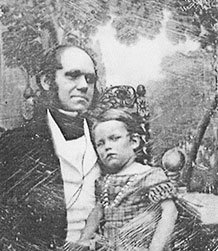
Charles Darwin.
Devon youngsters question Darwin’s ideas
In a series of letters, school students from Devon question Darwin’s ideas.
They argue that Darwin’s theory of Natural Selection and the idea which has come to be thought of as the survival of the fittest encourages conflict and inhibits compassion.
These debates, alongside other queries and quandaries, form part of the University of Exeter’s ‘Write a Letter to Darwin’ initiative.
Darwin relied on correspondence as his main source of information about plants, animals, and peoples of the world, following his move to a quiet village after his last major voyage. Letter-writing allowed him to conduct his research and gather evidence for his theory on a global scale and over the course of his career he wrote or received nearly 15,000 letters.
Throughout the bicentenary celebrations of the birth of Charles Darwin, schools in the South West were involved in a masterclass. The focus was on Darwin’s influence on literature and perspective on medical history and eugenics, about which many people are ignorant. Led by English and philosophy experts from the University of Exeter, the session, which formed part of National Science and Engineering Week earlier this year, extended into the letter-writing project.
As part of a competition and an extension of the masterclass, school pupils were provided with a selection of the numerous Darwin letters. They were invited to write to Darwin either imagining themselves to be one of his contemporaries, living in the 19th Century, or writing to him from the present.
University of Exeter English Lecturer Dr Angelique Richardson, who co-taught the masterclass, said of the letters, “They were imaginative, historically well-informed, some were humorous and most pupils wrote as themselves but a number as other scientists or members of Darwin's family, with one student, from South Wilts Grammar School for Girls, writing as a sailor from HMS Beagle.
“The letters especially worthy of commendation are from Colyton Grammar; of these, the two we thought were the best were by Griselda Shipp and Annabelle Clarke. While both celebrate the achievements of Darwin they were also able to see some limitations, or negative implications, of his work.”
Griselda Shipp observed in her letter that the tree of life is now challenged by horizontal gene transfer, common in bacterial life forms, whereby genetic material is passed between species not related to each other. Annabelle Clarke’s letter expressed concern that natural selection may endorse conflict. She argued that natural selection should be countered in order to protect the weak and vulnerable, emphasising the importance of animal conservation, even though this means intervening in evolutionary process. In addition an important point about global warming was made by Alice Holohan, also from Colyton Grammar.
The winning students’ letters will be displayed on the Cambridge Darwin Correspondence Project which gives public access to Darwin’s thousands of letters both personal and scientific. They will also receive book tokens and an opportunity to attend a high profile seminar that forms part of the Darwin, Medicine and Humanities Symposium at the University of Exeter.
The international conference, funded by the Wellcome Trust in collaboration with the University of Exeter’s Centre for Medical History, Centre for Victorian Studies, Exeter Interdisciplinary Institute and Egenis, is at the University on 18 and 19 September.
Date: 15 September 2009
